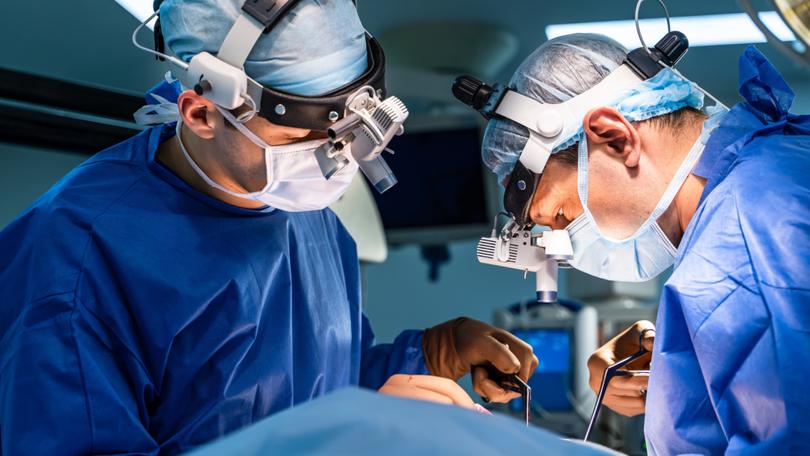Man-made heart valves that grow in body hailed as ‘holy grail’ of ops

Cardiac patients could soon be fitted with heart valves that grow naturally within their bodies, marking a breakthrough in the treatment of heart disease.
Up to 100 patients are set to be implanted with temporary valves made of fibres that act as a scaffold.
Over time, this scaffold integrates with the body’s cells and then dissolves, leaving behind a living valve composed entirely of the patient’s own tissue.
Sign up to The Nightly's newsletters.
Get the first look at the digital newspaper, curated daily stories and breaking headlines delivered to your inbox.
By continuing you agree to our Terms and Privacy Policy.Valve replacements are needed when heart valves become diseased and stiffen or become leaky, increasing the risk of heart failure, stroke, or heart attacks.
But existing alternatives implanted in a patient have major drawbacks.
Valves taken from cows, pigs or human tissue last only a decade or so and can still be rejected by the body’s immune system.
Mechanical valves require patients to take medicine for the rest of their lives.
Current treatments are also challenging for children born with heart defects because the valves do not get bigger as the patient grows and must be replaced several times before adulthood.
But the new valves grow as the child matures.
The project is being led by Professor Sir Magdi Yacoub, 89, who did the UK’s first heart-lung transplant at Harefield Hospital in north-west London in 1983.
Some 13,000 heart-valve replacements are performed annually in England and 300,000 worldwide – and the numbers are growing each year.
The living valve could transform patients’ lives by eliminating the need for repeated surgeries and reducing the risk of rejection.
Dr Sonya Babu-Narayan, associate medical director of the British Heart Foundation, hailed the development as “the holy grail” of heart-valve surgery, adding: “Many people could live well for longer without repeated heart-valve procedures.”
Sir Magdi told The Sunday Times: “Nature is the greatest technology. It is so superior to anything we can make. Once something is living – a cell, tissue, or [the living valve] – it adapts on its own. Biology is like magic.”
Research published in the journal Nature Communications Biology showed promising results in sheep.
Within just four weeks of implantation, more than 20 types of cells – including nerve and fatty tissue ones – were found in their correct locations, mimicking a natural heart valve.
Unlike previous attempts, this project at Harefield Hospital has successfully encouraged the growth of nerve cells in the valve.
Within six months, the structure becomes entirely composed of living cells from the patient, and within two years the scaffold dissolves, leaving behind a fully functional heart valve that grows with the patient during their life.
Human trials on patients including children are set to begin in 18 months, comparing the living valve with conventional artificial valves and involving an international team of experts from institutions such as University College London, Great Ormond Street Hospital, and medical centres in New York, Italy, and the Netherlands.
